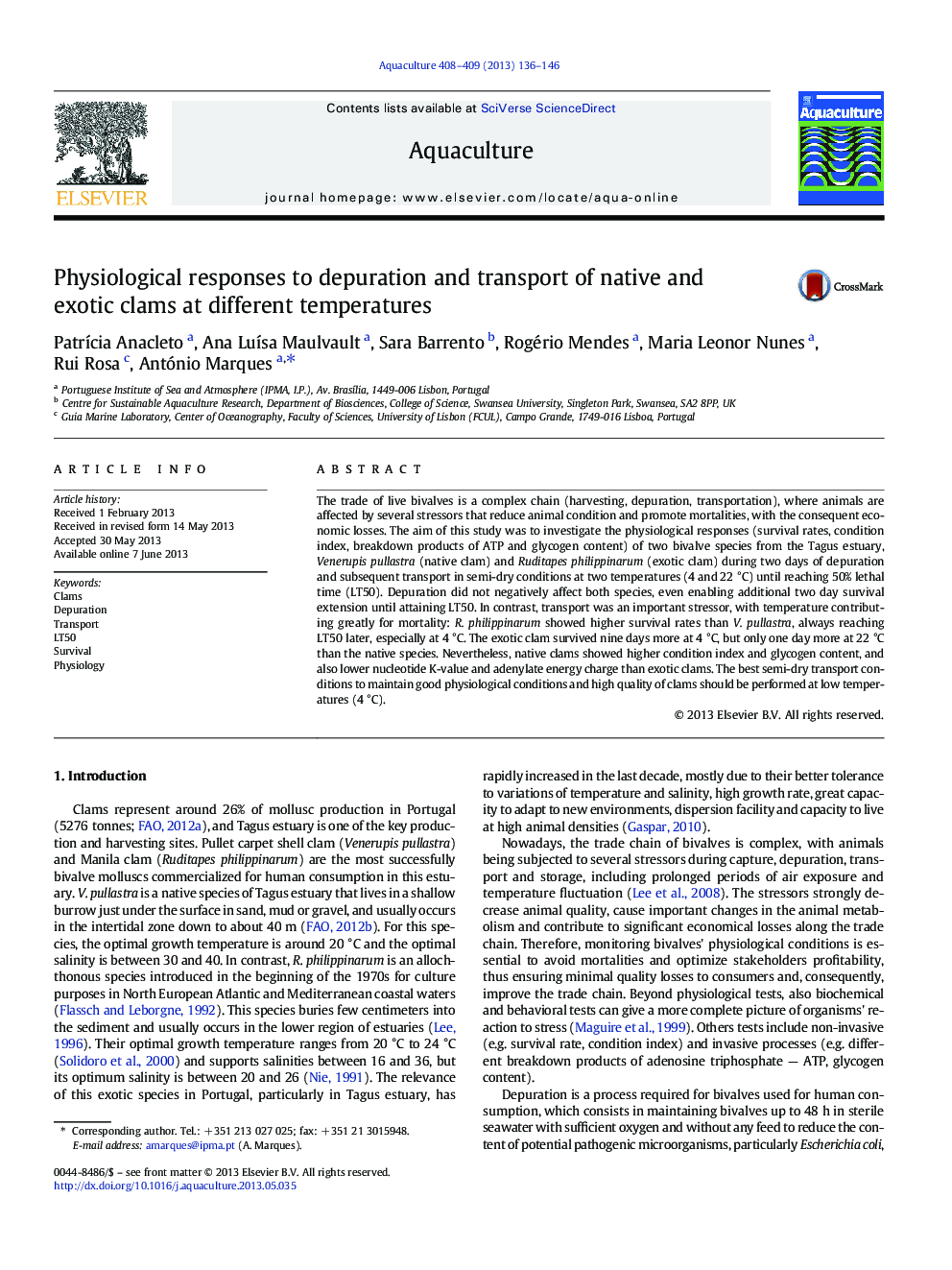| کد مقاله | کد نشریه | سال انتشار | مقاله انگلیسی | نسخه تمام متن |
|---|---|---|---|---|
| 8495563 | 1552869 | 2013 | 11 صفحه PDF | دانلود رایگان |
عنوان انگلیسی مقاله ISI
Physiological responses to depuration and transport of native and exotic clams at different temperatures
ترجمه فارسی عنوان
پاسخ های فیزیولوژیکی به پاک کردن و حمل جلبک های بومی و عجیب و غریب در دماهای مختلف
دانلود مقاله + سفارش ترجمه
دانلود مقاله ISI انگلیسی
رایگان برای ایرانیان
کلمات کلیدی
موضوعات مرتبط
علوم زیستی و بیوفناوری
علوم کشاورزی و بیولوژیک
علوم آبزیان
چکیده انگلیسی
The trade of live bivalves is a complex chain (harvesting, depuration, transportation), where animals are affected by several stressors that reduce animal condition and promote mortalities, with the consequent economic losses. The aim of this study was to investigate the physiological responses (survival rates, condition index, breakdown products of ATP and glycogen content) of two bivalve species from the Tagus estuary, Venerupis pullastra (native clam) and Ruditapes philippinarum (exotic clam) during two days of depuration and subsequent transport in semi-dry conditions at two temperatures (4 and 22 °C) until reaching 50% lethal time (LT50). Depuration did not negatively affect both species, even enabling additional two day survival extension until attaining LT50. In contrast, transport was an important stressor, with temperature contributing greatly for mortality: R. philippinarum showed higher survival rates than V. pullastra, always reaching LT50 later, especially at 4 °C. The exotic clam survived nine days more at 4 °C, but only one day more at 22 °C than the native species. Nevertheless, native clams showed higher condition index and glycogen content, and also lower nucleotide K-value and adenylate energy charge than exotic clams. The best semi-dry transport conditions to maintain good physiological conditions and high quality of clams should be performed at low temperatures (4 °C).
ناشر
Database: Elsevier - ScienceDirect (ساینس دایرکت)
Journal: Aquaculture - Volumes 408â409, 15 September 2013, Pages 136-146
Journal: Aquaculture - Volumes 408â409, 15 September 2013, Pages 136-146
نویسندگان
PatrÃcia Anacleto, Ana LuÃsa Maulvault, Sara Barrento, Rogério Mendes, Maria Leonor Nunes, Rui Rosa, António Marques,
